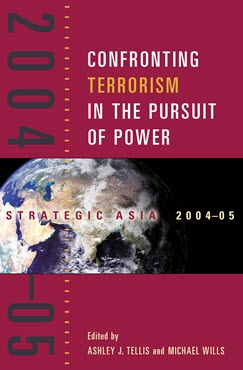Energy
Asia's Energy Insecurity--Cooperation or Conflict
Asia’s mushrooming energy demand is driving growing dependence on energy imports that is likely to accelerate over the next two decades. The result is a deepening sense of energy insecurity that promises to have important long-term geo-political implications for the region and for the United States. U.S. policymakers need to recognize the growing links between Asia’s energy insecurity and U.S. geo-political and energy interests, and boost efforts to slow demand growth and encourage regional energy cooperation and markets over energy competition and nationalism.
Asia’s mushrooming energy demand is driving growing dependence on energy imports that is likely to accelerate over the next two decades. The result is a deepening sense of energy insecurity that promises to have important long-term geo-political implications for the region and for the United States. Asian powers are responding more often with “energy nationalism” than with energy cooperation as they reach out to secure future supplies. The risks of terrorist attacks on vital energy infrastructure are rising, fueling fears of supply disruptions, and political instability. The United States has major strategic stakes in how Asia responds to its energy insecurity and its impact on the region and global energy geo-politics. U.S. policymakers need to recognize the growing links between Asia’s energy insecurity and U.S. geo-political and energy interests, and boost efforts to slow demand growth and encourage regional energy cooperation and markets over energy competition and nationalism.
Strategic Asia
The Strategic Asia annual edited volume incorporates assessments of economic, political, and military trends and focuses on the strategies that drive policy in the region. Learn more about Strategic Asia.


